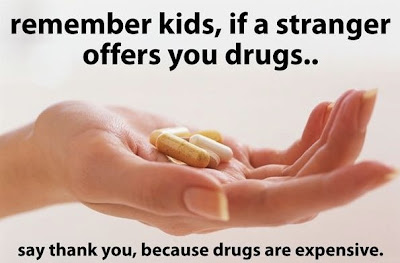For your final Blog Post, you are going to take on a question of deviance, and explain the current debate on the topic. You can choose from the list below, or find something else that interests you. Choose a topic based on a realistic ability to do a fair treatment of the arguments in the space allotted. Feel free to email me or meet with me about your choice, if you want help brainstorming. After you choose a topic, pick two sides of the debate—even though many of these are far too complex for just two sides—and explain what you see as the most convincing arguments on each.
First, pick a question. Briefly explain why you chose the topic, and explain how it relates to the course. Next, briefly explain the THREE best arguments for EACH side of the debate (there will be SIX arguments total). Last, take a stand! Let me know where you fall in the debate, and why, firmly grounded in the concepts of this course, NOT personal experience or opinion. Remember, this is an academic analysis of arguments, not an editorial. Keep the tone and language scholarly throughout the entire post.
To find the arguments, cull through all of the chapters of the book, and class materials. Make sure you pull out everything we have used in lecture, and the readings—look back at the theories, and all of the concepts we’ve discussed. You may also want to read ahead if you see a future article that pertains to your topic. Also do outside research to make sure you are finding the best possible arguments. As with your other Blog Posts, you must integrate, explain, and fully cite at least THREE of the readings from the class above and beyond the citations for the outside sources of your arguments (unless the reading is the source of your argument). Be sure you properly cite each and every source—remember, if it isn’t a thought that originated in your brain, cite it! Try your best to rely on academic sources, and only use informal sources (such as blogs) when you must. When you do use other sources, make sure you cite them properly.
This paper should be 600 to 1500 words in length, NOT including the Works Cited at the end, and must be posted by 9:00pm on April 29th. Be sure to proofread carefully—spelling and grammar issues detract from the points you are trying to make. If you are unsure of your writing in any way, I suggest seeking help from the Writing Center. They will provide free proofreading help, and can give you tips for organizing your writing. Push yourself to produce a post you can be proud of!
Potential Topics (choose one, or come up with your own!):
- Should intersex babies be surgically assigned a sex category at birth?
- Should we have separate high schools for LGBTQ students?
- Should sex work be legal?
- Should/can the United States legally recognize more than two genders?
- Should same-sex marriage be legal?
- Should polygamy be legal?
- Is the “gay panic” or “trans panic” defense legitimate?
- How young is too young to make a transgender transition?
- What should be the age of consent for sexual activity?
- Should police be patrolling bathrooms for people having consensual sex?
- Should LGBTQ issues be discussed in schools? If so, starting at what age? Or, what types of topics?
- How should schools handle transgender students and bathrooms?
- Should [enter group here] be labeled as deviant?
- Should there be regulations about how deviant people are portrayed in the media?
- What is the best way to change a social norm? Through the culture, or policy?
- Should sex offenders have to register? Should any other type of crime have a registry, also or instead?
- What can we do to ensure members of minority groups get fair treatment in the criminal justice system?
- Should some groups get special treatment in the criminal justice system, given their systematic disadvantage?
- Should there be more/less regulation on media and/or products around weight loss?
- What accommodations should institutions have to accommodate different levels of ability?
- What is an appropriate age for a person to get a cochlear implant?
- How can bullying best be stopped?
- Should self-harm be legal or illegal?
- What should be the age of consent for body modification?
- Should we be working to reduce the prevalence of eating disorders? If so, how?
- Are some kinks or fetishes harmful?
- How can we change the stud/slut double standard? Or should we?
- What can we do to stop sex tourism? Or should we?
- Should someone be able to amputate a healthy limb if they want? Should they have to be diagnosed with Body Integrity Identity Disorder (BIID) first?
- Should we see more models of average and above average size in mainstream media?
- Should people with particular disabilities, sexual functioning and/or fetishes be able to legally hire specialized sex workers?














